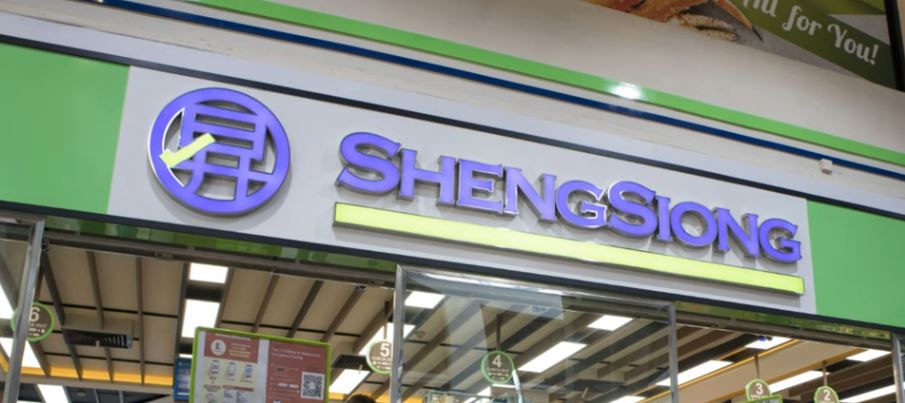A particularly good example of how a traditional supermarket chain can stay competitive while adjusting to contemporary labor standards is Sheng Siong’s pay structure. The compensation ecosystem that Sheng Siong has quietly created is remarkably effective, in contrast to many mass retail employers that work on razor-thin margins and rely heavily on underpaid part-time labor. Scaling from modest cashier wages to multimillion-dollar executive packages—structured in a way that rewards performance, longevity, and alignment with company growth—it strikes a balance between affordability and motivation.
| Sheng Siong Salary Structure (2025) | Details |
|---|---|
| Cashier (Full-Time) | $13,000 – $27,000 annually |
| Cashier (Part-Time) | $11,000 – $23,000 annually |
| Sales Associate/Cashier | $13,000 – $28,000 annually |
| Packer | $18,000 – $25,000 annually |
| Assistant Manager | $44,000 – $62,000 annually |
| Manager | $40,000 – $100,000 annually |
| CEO – Lim Hock Chee (2024) | $7.06 million total compensation |
| Average Bonus – General Staff | 8.36 months’ salary |
| Average Bonus – Part-Time Staff | 4.68 months’ salary |
| Job Satisfaction (Glassdoor) | 3.4 / 5 rating |
Salary levels for front-line staff start out low but provide a planned path to advancement. The average annual salary for a cashier or sales associate at Sheng Siong is between $13,000 and $28,000. In addition to having one of the most generous bonus structures in the retail industry, these positions can feel surprisingly affordable by Singaporean standards. Bonuses for part-time employees are frequently reported to be 4.68 months’ worth of their salary, which is significantly more than the average for hourly work. These bonuses, which are remarkably consistent from year to year, are thought to act as a buffer against burnout and promote employee retention, particularly during holiday seasons when workloads spike.

Sheng Siong adopts a performance-driven strategy that is particularly open at the executive level. The total compensation package that CEO Lim Hock Chee received in 2024 was $7.06 million, which was 20.6% more than the previous year. A base salary of $373,000, a variable bonus of $6.66 million, and small extras like director’s fees and in-kind benefits were all part of his compensation package. This pay increase came after a year in which the business reported a 4.5% increase in revenue, bringing its yearly revenue to $1.4 billion and its net profit to $137.5 million.
Although this increase might seem excessive at first, it was closely linked to profitability and performance metrics, which is a model that holds leadership responsible. Sheng Siong’s structure is especially creative in this respect, guaranteeing that executive rewards only increase in response to the achievement of company-wide goals. This approach has proven to be incredibly resilient, withstanding both public scrutiny and market fluctuations.
From a social perspective, Sheng Siong’s strategy aids in changing the perception of retail positions as low-wage, low-promotion positions. The company’s emphasis on loyalty, internal promotion opportunities, and structured bonus systems have significantly increased employee morale and talent retention. Such incentives provide more than just financial value; they also foster professional dignity at a time when younger workers are looking for purpose just as much as money.
Operationally, Sheng Siong has relied on digitization and automation to counteract growing labor expenses. The business has become extremely efficient without drastically reducing its workforce by making strategic investments in self-checkout systems and AI-enhanced logistics platforms. The unusually high bonuses across different tiers can be explained by the fact that this move has allowed it to reallocate funds toward employee compensation.
Sheng Siong’s model has grown more applicable over the last ten years as inflationary pressures have continued to alter employee expectations. Sheng Siong has adopted a counterintuitive but effective strategy, streamlining operations and freeing up human talent for customer-facing roles while maintaining profitability, in contrast to most competitors who have responded by reducing benefits and reorganizing labor models.
The company is putting sustainability ahead of speed by expanding gradually, particularly with its cautious entry into China. Recent remarks by Lim Hock Chee point to a long-term strategy that emphasizes streamlining operations and growing only in extremely clear market conditions. This insight is especially helpful in protecting the business from the unpredictability of trade disruptions and changing consumer preferences.
Sheng Siong’s part-time jobs have become dependable sources of extra cash, especially for working students and families with moderate incomes. These positions provide a surprisingly stable foundation for young or transitioning workers, with hourly rates ranging from $7 to $25 and bonus opportunities that frequently surpass those in tech internships or call centers. Numerous employees have remained with the company and advanced into corporate or managerial positions, which is evidence of the meritocratic undertone in its HR philosophy.
By putting its employees’ trust and rewarding their efforts with real money, Sheng Siong has created a work environment that is hard to imitate and produces incredibly high-quality results. The careers developed inside Sheng Siong’s stores are usually based on genuine upward mobility, which is something that big businesses in other industries frequently promise but rarely deliver with such consistency, even though retail may not always be seen as glamorous.
As of 2025, Sheng Siong is still striking a balance between financial responsibility and incentive compensation, which is a particularly effective strategy in an area where retail talent is frequently in short supply. If anything, supermarkets looking to future-proof their operations while maintaining a commitment to community-focused employment could use the model it’s developing as a model.
